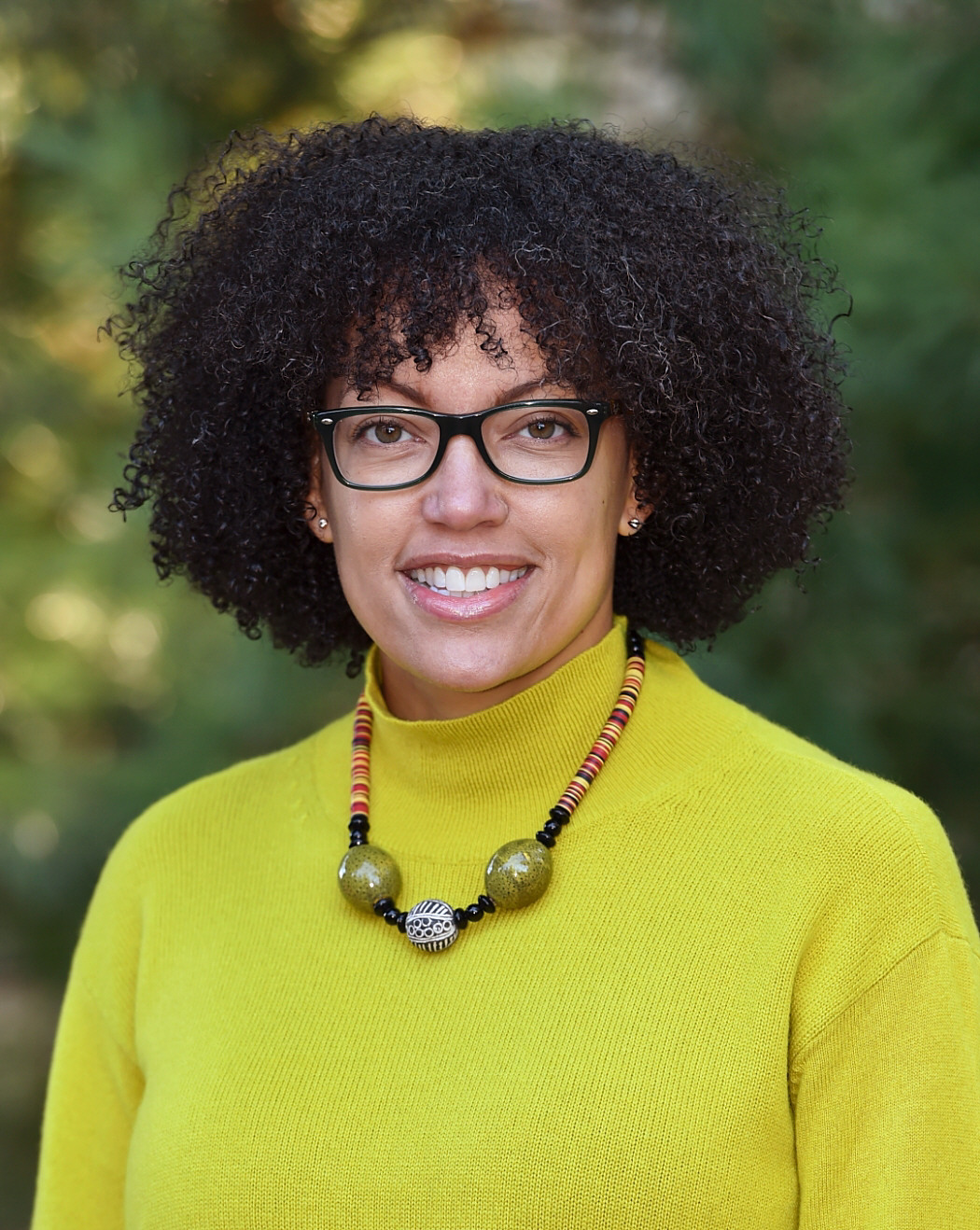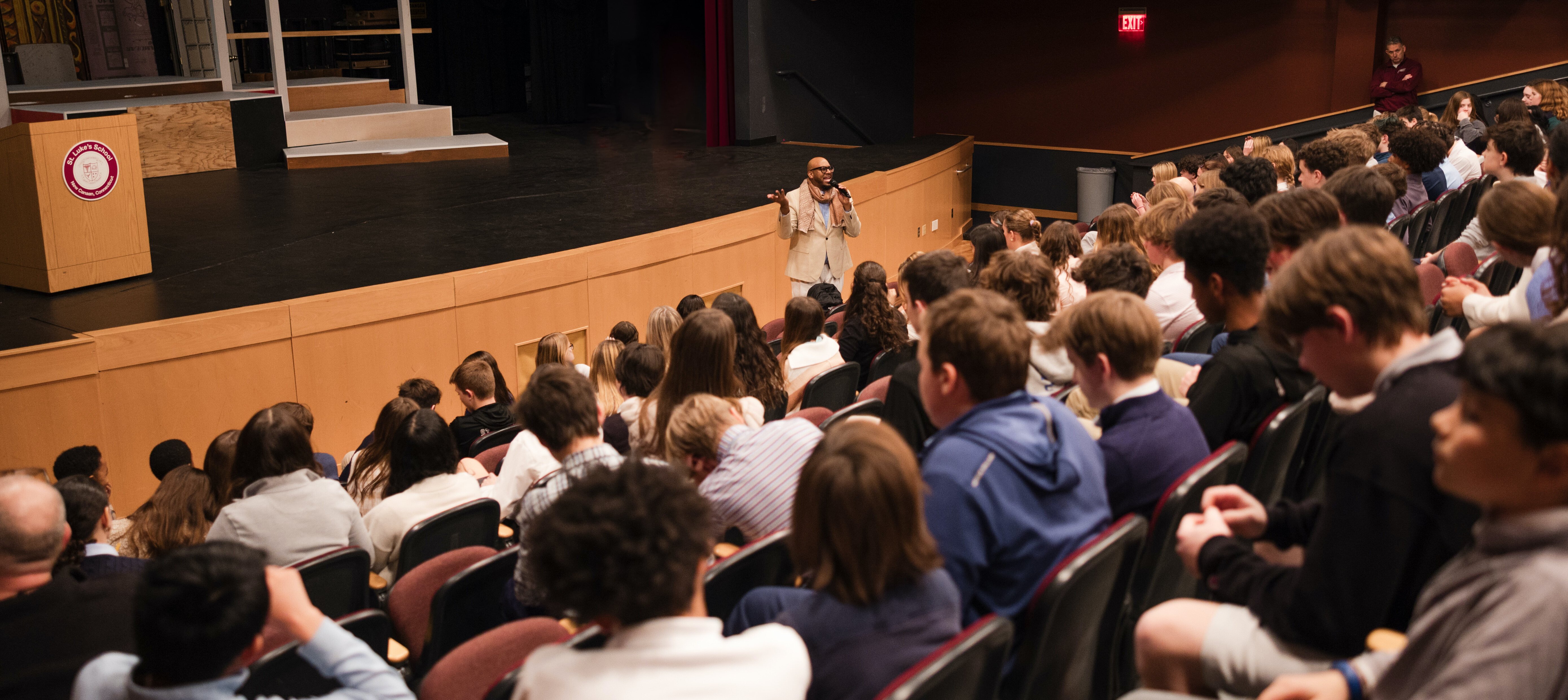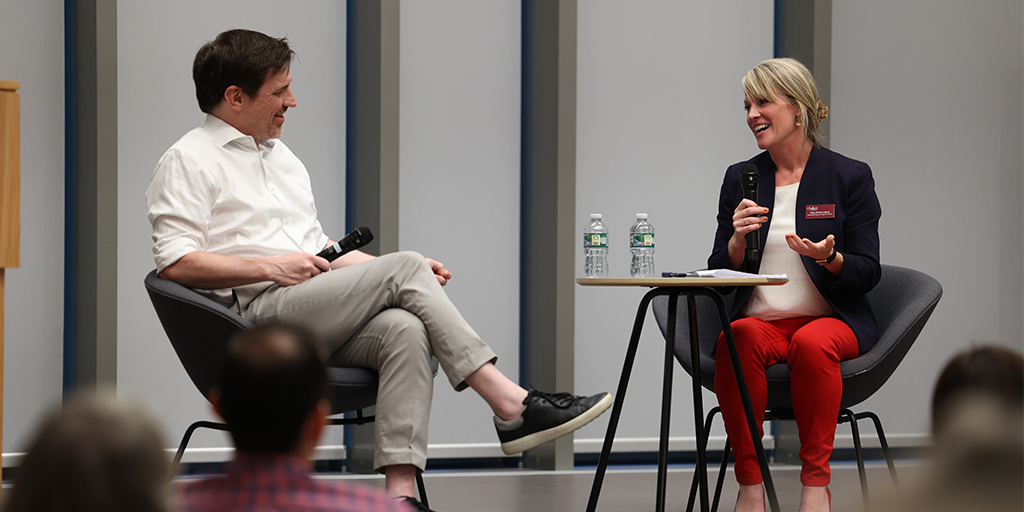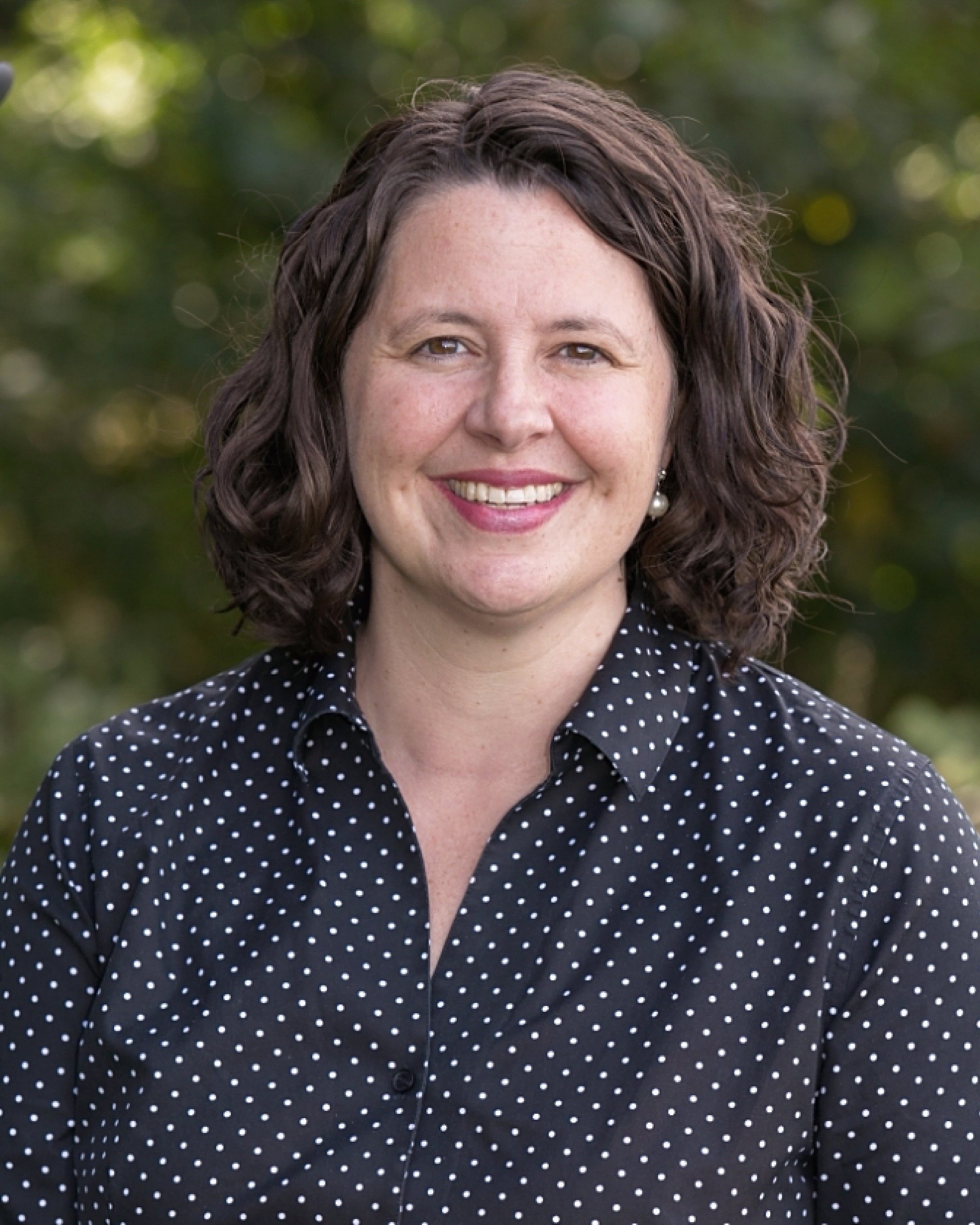In my office hangs a letter board with my favorite quote on display:
“We don’t see things as they are, we see them as we are.”
—Anaïs Nin
I appreciate these few simple words because they serve as an important reminder that each of us has a unique frame of reference with which we encounter and interpret the world. Now more than ever, as I examine the current state of our society and the ways in which we interact with one another, I return to this quote to thoughtfully consider more productive ways we, as a community, might attempt to navigate and learn from differences of opinion, belief, and experiences. Remembering that there is no singular way to “see things” can make us more curious to collect the views of others. That curiosity can and should be the foundation for a strong, knowledgeable, and inclusive community.
Over the years I've learned—from personal and professional experience— that every person’s journey and vantage point are unique and therefore are also subjective. Having grown up in a relatively homogenous, insular, suburban community, I certainly held certain beliefs and made assumptions about people who grew up or looked differently than me. We all hold biases, have blind spots, and make assumptions based on our perceptions of reality. For these reasons, the skill of perspective-taking is essential to navigating, learning, and benefiting from our differences.
As St. Luke’s Director of Equity and Inclusion, my primary responsibility is to help foster a school culture in which we, as a school community, collectively embrace diversity and inclusion as a core value, ensuring mutual respect for our many visible and invisible differences. Again, I return to the Nin quote. I truly believe that there is good to be found in every person, despite our competing priorities and own self-interest; that we can learn from every interaction and situation if we maintain a degree of open-mindedness. Instead of assuming there is one way to interpret the world, if we could learn to accept and appreciate a multitude of perspectives as a reality of life, maybe, just maybe, we can come to see things as we are AND recognize that others will always see things from their own point of view.
I think a story might help to illuminate how I came to hold this belief.
As a relatively new director of diversity and inclusivity at another school, I came face-to-face with my own limited perspective after organizing a social mixer for K-12 “parents of students of color. ” The event was a direct response to a request from a group of parents of color, which was met with overwhelming enthusiasm, except for one particular parent who received the invitation. This father of four was a successful entrepreneur and seasoned independent school parent who identified as a Black man with an African-immigrant background.
Just before the gathering, he and I sat down with the Head of School, to discuss his concern. From this parent’s perspective, separating people by color directly undermined the school’s diversity and inclusivity goals. He was seeing from his own unique perspective—a point of view that I had not previously encountered at the school. As I listened, I learned that this man was comfortable navigating our upper east side school community as a “person of color” and didn’t see the need for a gathering of this kind. As I listened to his concerns, it dawned on me that this was a perfect example of seeing things as we are—here was a Black man from a country where people who looked like him were the majority. He did not grow up concerned about racial underrepresentation in the way that many other parents of color seemed to be experiencing at the school. This was an important realization for me especially given my role. This interaction reinforced for me the importance of the “platinum rule” - treat others the waythey want to be treated.
In an attempt to consider his point of view, I no longer felt compelled to convince him of the need for such a gathering, and instead affirmed his experience and acknowledged his reality. I also honed in on the purpose of my role, to listen, learn, and create various opportunities for folks at the school to build community within community, as part of a larger strategy to promote a sense of belonging. To establish some degree of mutual understanding, instead of looking for ways to minimize or find fault in his thinking, at that moment I decided to focus on commonality and shared interest—children and students—to help frame the deeper purpose of the mixer and highlight why others in the community desired such a space. This father wound up attending the gathering with his wife and reported that he enjoyed the experience. As we debriefed, following the gathering, we ultimately agreed that each person has different needs and desired outcomes, and acknowledged the many different factors that contribute to one’s sense of connectedness and ability to thrive.
I continue to reflect on the ways in which we move from rigid “either/or” assumptions to more inclusive “both/and” thinking. I continue to remind myself that any one of us can start out with the most positive of intentions, and yet our impact on others can never be fully appreciated until we are in conversation with one another. According to St. Luke’s Vision for Inclusive Excellence, we will have realized our mission when “Every individual in our community belongs, is valued, and has a stake in the life and purpose of St. Luke’s.” Creating a genuine climate of belonging and mutual understanding requires us all to be willing, able, and intentional enough to celebrate both our similarities and differences; to maintain open lines of communication and remain receptive to earnest feedback; to imagine new possibilities, and consider perspectives outside of our own. One lens, one story, one point of view will never tell the whole story. Trying to understand things from many viewpoints will help us deliver our mission and Vision for Inclusive Excellence.
In my role, I seek to connect directly with the St. Luke’s community to learn from and with you. I welcome both your questions and your input on this topic or any other that feels relevant to the pursuit of the School’s vision. Know that my door is always open and please do not hesitate to contact me or stop by the Office of Equity and Inclusion. I am here to listen and would love to know what’s on your hearts and minds, so that I can best support you and the St. Luke’s family.
Want to dive deeper??
Here is some further “food for thought”:
Brian Miller TedTalk - How to Magically Connect with Anyone
Social Learning Theory - Very Well Mind
St. Luke’s is a private, secular (non-religious) independent school in New Canaan, CT serving grades 5-12. St. Luke’s mission: An exceptional education that inspires a deep love of learning, a strong moral compass, the commitment to serve, and the confidence to lead.
Get our latest blog posts!

By Author
- Amber Berry: Former Head of Middle School ( 2 )
- Beth Yavenditti: Director of Global Education ( 3 )
- Carrie Meatto: Spanish Teacher ( 1 )
- Daphne Teittinen-Schreck: ESS Director ( 1 )
- Dr. Jason Haynes: History Chair ( 2 )
- Dr. Stephanie Bramlett: Former Director of Inclusive Excellence ( 2 )
- Gareth Fancher: Director of Emotional Intelligence ( 1 )
- Georgia Rosenberg '19: Student ( 1 )
- Hunter Martin: Summer Program Director ( 1 )
- Jacqueline Nelson: Director of Equity and Inclusion ( 4 )
- Jane Olsen: Fifth Grade Teacher (retired) ( 1 )
- Jason Giffen: Director of Enrollment Management ( 4 )
- Jessie Samuel, Fifth Grade Science Teacher ( 1 )
- Jim Foley: Asst. Head of School for Leadership & Innovation ( 2 )
- Jim Yavenditti: Director of Studies ( 1 )
- Joshua Schneider, Upper School Science Teacher ( 1 )
- Julia Gabriele: Associate Head of School & Chief Financial Officer ( 5 )
- Kate Parker-Burgard: Director of Community Connections ( 22 )
- Liz Perry: Assistant Head of School for Academics ( 11 )
- Mark Chuhta: Asst. Head of Middle School ( 1 )
- Mary Halpin Carter: Head of School ( 3 )
- Nancy Troeger: Director of Marketing and Communications ( 3 )
- Sonia Bell: Director of College Counseling ( 2 )
- Stephen Vehslage: Associate Director of College Counseling ( 1 )
- Students: Jack Briggs '21 and Liam Patty '21 ( 1 )
- Tom Owen: English Teaching Fellow ( 1 )
- Gareth Fancher ( 1 ) [Show All]
Recent Articles
Posts by Topic
- Leadership (44)
- Character (33)
- Mission (32)
- Community (28)
- School (25)
- Innovation in Education (18)
- Lifelong Learning (18)
- Service (18)
- teens (18)
- private school (14)
- Inspiration (13)
- Values (13)
- Moral Compass (11)
- Parenting (10)
- Diversity & Inclusion (9)
- Global Perspective (9)
- Above and Beyond (7)
- Gratitude (7)
- Moral Courage (7)
- Well-Being (7)
- Freedom (4)
- Mindfulness (4)
- SLSHeroes (4)
- college (4)
- Civil Discourse (3)
- College Admissions (3)
- Resilience (3)
- Student Voices (3)
- Technology (3)
- humanity (3)
- Meditation (2)
- Parents as Partners (2)
- Postive (Alumni) Outcomes (2)
- Private School Admissions (2)
- student-led learning (2)
- Athletics (1)
- Family (1)
- Patriotism (1)
- middle school (1)





.png)










Leave a comment